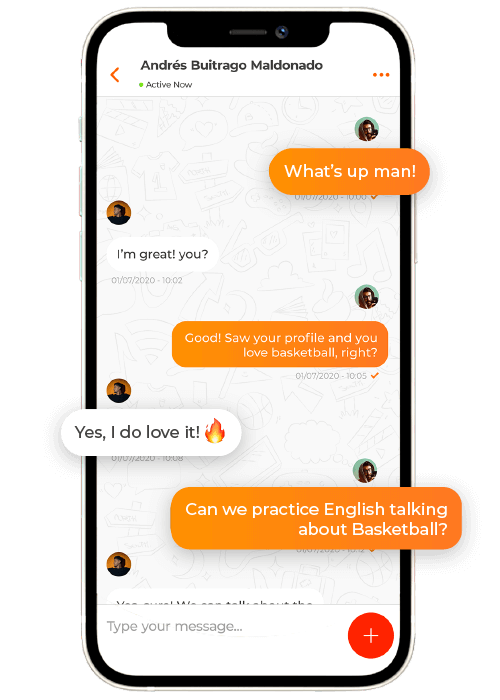Learning Spanish is easy with Bilingual
With our Spanish course you can also learn and practice English and Portuguese, because studying languages will give you new opportunities - Let’s do it!
We recommend you to study and practice from 15 to 30 minutes every day so that you will notice results.
The auxiliary verbs in English, auxiliary verb DO
What are auxiliary verbs in English?
Auxiliary verbs in English are words that are used along with the main verbs to form interrogative, positive and negative sentences.
Auxiliary verb DO
The auxiliary verb Do is used to formulate questions, affirmations and negations in the present simple and the past simple. It should not be used to ask questions with the To be verb or with modal verbs.
Questions and answers with the Auxiliary Do (Present)
 
English |
 
Español |
 
Português |
  Do you read books? Yes, I do. No, I don’t. |
  ¿Tú lees libros? / ¿Usted lee libros? Sí, yo leo. No, yo no leo. |
  Você lê livros? Sim, eu leio. Não, eu não leio. |
  Do we speak Spanish? Yes, we do. No, we don’t. |
  ¿Nosotros hablamos español? / ¿Nosotras hablamos español? Sí, si hablamos. No, no hablamos. |
  Nós falamos espanhol? Sim, nós falamos. Não, nós não falamos. |
  Do you play basketball? Yes, you do. No, we don’t. |
  ¿Ustedes juegan baloncesto? Sí, si jugamos. No, no jugamos. |
  Vocês jogam basquete? Sim, nós jogamos. Não, nós não jogamos. |
  Do they sing rock music? Yes, they do. No, they don’t. |
  ¿Ellos cantan rock? Sí, si cantan. No, no cantan. |
  Eles cantam rock? Sim, eles cantam. Não, eles não cantam. |
Questions and answers with the Auxiliary Does (Present)
 
English |
 
Español |
 
Português |
  Does he write poems? Yes, he does. No, he doesn’t. |
  ¿Él escribe poemas? Sí, él escribe. No, él no escribe. |
  Ele escreve poemas? Sim, ele escreve. Não, ele não escreve. |
  Does she run in the park? Yes, she does. No, she doesn’t. |
  ¿Ella corre en el parque? Sí, ella corre. No, ella no corre. |
  Ela corre no parque? Sim, ela corre. Não, ela não corre. |
  Does it (cat) eat tuna? Yes, it (the cat) does. No, it (the cat) doesn’t. |
  ¿Él (el gato) come atún? Sí, él (el gato) come. No, él (el gato) no come. |
  Ele (o gato) come atum? Sim, ele (o gato) come. Não, ele (o gato) não come. |
Questions and answers with the Auxiliary Did (Past)
 
English |
 
Español |
 
Português |
  Did you watch YouTube videos yesterday? Yes, I did. No, I did not. |
  ¿Tu viste videos en YouTube ayer? Sí, si ví. No, no ví. |
  Você viu os vídeos no YouTube ontem? Sim, eu vi. Não, eu não vi. |
  Did he sing last night at the bar? Yes, he did. No, he didn’t. |
  ¿Él cantó anoche en el bar? Sí, él cantó. No, él no cantó. |
  Ele cantou ontem à noite no bar? Sim, ele cantou. Não, ele não cantou. |
  Did it (the dog) be in the park alone? Yes, it (the dog) did. No, it (the dog) did. |
  ¿Él (el perro) estaba en el parque solo? Sí, él (el perro) estaba solo. No, él (el perro) no estaba solo. |
  Ele (o cão) estava no parque sozinho? Sim, ele (o cão) estava sozinho. Não, ele (o cão) não estava sozinho. |
  Did they write the movie script? Yes, they did. No, they did not. |
  ¿Ellas escribieron el guión de la película? Sí, ellas escribieron el guión. No, ellas no lo escribieron. |
  Elas escreveram o guião do filme? Sim, elas escreveram o guião. Não, elas não escreveram o guião. |
Keep studying: The possessives or browse our full Spanish course.
Go back to: Interrogative pronouns
Start practicing in our chat! you only have to download Bilingual. Available on App Store and Google Play.
Learn and practice languages with Bilingua
Learn with our Spanish course and practice any language by downloading Bilingual from App Store or Google Play.






